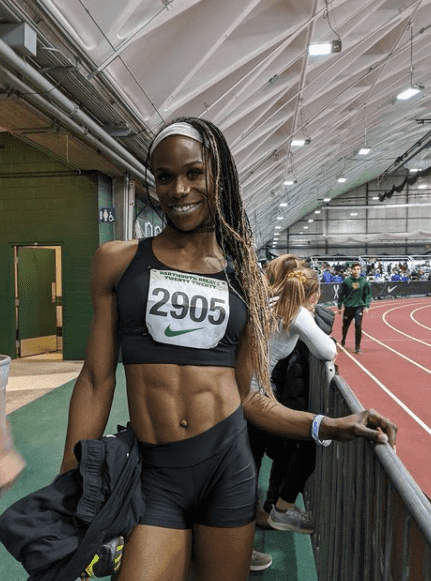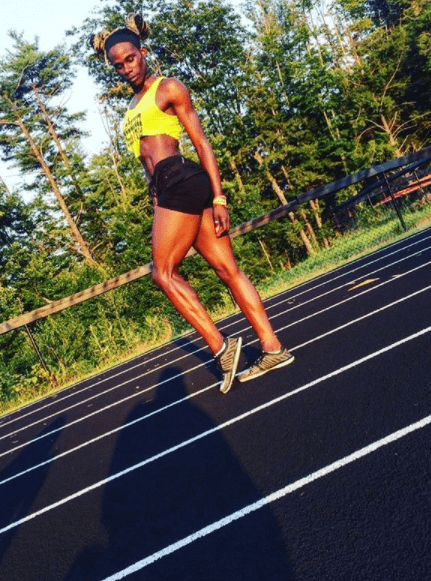Who is CeCe Telfer? Trans woman barred from US Olympic trials for not meeting hormonal requirements

Transgender runner CeCe Telfer is barred from competing in the women's 400-meter hurdles at the US Olympic trials in Oregon. The athlete could not demonstrate that she meets the testosterone requirements. USA Track & Field (USATF) informed on Thursday, June 24, that Telfer would only be able to compete in future events if she gets her testosterone levels below 5 nonomoles per liter (nmol/L) for a span of 12 months.
The 5 nmol/L testosterone level is considered to be the highest a female would naturally have. It was set by World Athletics in 2019 for members who want to join the US Olympic team to compete in women's races of distances between 400 meters and one mile. USATF said that Telfer didn't meet the conditions by June 22 and therefore will not be allowed to compete.
READ MORE
Who is Chelsea Wolfe? Trans BMX rider slammed for vowing to burn US flag at Olympics

USATF released a statement which said, "If CeCe meets the conditions for transgender athlete participation in the future, we wholeheartedly back her participation in international events as a member of Team USATF." Commenting on the decision, Telfer's manager David McFarland said, "CeCe has turned her focus towards the future and is continuing to train. She will compete on the national and world stage again soon."
Who is CeCe Telfer?
Telfer is a Jamaican-American athlete who became the first openly transgender woman to win an NCAA title in 2019. Telfer initially competed in the men's division from 2016 to 2017 but after coming out and beginning her transition, she competed in the women's division. Telfer was born in Jamaica and was assigned male at birth. Raised by a single mother, Telfer is one of three siblings. Telfer moved to Canada when she was 12 before relocating to New Hampshire as a high school junior. During high schoo,l Telfer began participating in track and field.

When Telfer competed in the NCAA Women's Division II Outdoor Track and Field Championships in 2019, the NCAA's only requirement was that a transgender athlete must complete one year of hormone treatment before competing on a female team. Before transitioning, Telfer competed in the men's team in 2016 and 2017. She did not compete in 2018 at all as she transitioned.
Telfer had a hard time preparing for the Olympic trials during the pandemic as she could not find a coach to support her. She briefly trained in Mexico and returned to New Hampshire where she slept in her car for a while before moving in with her former psychologist in Swanzey. In a blog last week in Women's Health, Telfer wrote, "I love what I'm doing and I'm getting to live my truth and live my authentic life. I believe that this is my way of being the change that I want to see in the world. And I live by that every single day."
While many argue that transgender athletes have an unfair advantage in women's sports, Telfer said that she is at a disadvantage because her 6-foot-2 height makes her more susceptible to wind resistance. "First of all, my height, how tall I am, is a disadvantage, because the wind is hitting us so hard and the taller you are, the harder you fall, basically," she told OutSports.com. She further mentioned that the spacing of the hurdles is arranged for short runners. "The fact that the hurdles are so close. The distance between the hurdles is smaller in women's competition. They are six inches shorter than in the men's races, but more than half a meter closer together," she added.
Telfer even faced backlash after winning her national title. For instance, Donald Trump Jr tweeted that her victory in the 400 meters was "another grave injustice to so many young women who trained their entire lives to achieve excellence"

Telfer wrote in a blogpost for Yahoo! that she has 'never identified as a male athlete.' "In high school, during track meets, I would say to myself that I'm a female athlete competing in a sport that I love," she explained. "I didn't start competing on the women's track team until my senior year of college at Franklin Pierce University. At that point, I had already come out and long since met the NCAA requirements for a trans woman athlete to compete on the women's team, one year of testosterone suppression treatment, " she added.










